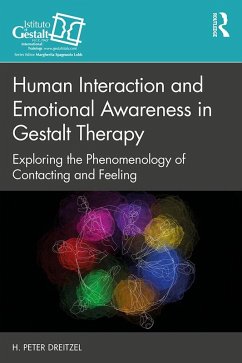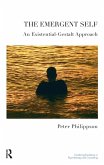The book makes an important contribution to our understanding of the role of psychotherapy in the modern world, especially in the context of change and crisis. Dreitzel sets out a new perspective of how we interact with each other, how we frame our encounters and differentiate them from one another, how we give them meaning, and how they are related to our needs and wants. This is followed by a unique phenomenological exploration of the emotions guiding such contacts, the first time the world of human feelings has been explored in depth and systematically analysed in Gestalt thought. These innovative explorations are framed first by a discussion of the historical development of Western conventions regarding everyday behaviour, and secondly by an examination of perspectives on climate change. Dreitzel analyses the mental and emotional states of potential clients as they are affected by these global processes and the book also includes an epilogue which evaluates how to work with climate anxiety.
Dreitzel's conception of social change, with Gestalt therapy at its core, is relevant to all aspects of humanistic psychology. It elevates empathy, emotional development and the prevention of suffering at all levels of society, filling important gaps in Gestalt therapy theory and expanding it into exciting new territory. Human Interaction and Emotional Awareness in Gestalt Therapy also contains an insightful foreword by Michael Vincent Miller, PhD, and will be essential reading for Gestalt therapists, other professionals with an interest in Gestalt approaches and readers interested in social interaction, climate change and the role of psychotherapy in a changing world.
Dieser Download kann aus rechtlichen Gründen nur mit Rechnungsadresse in A, B, BG, CY, CZ, D, DK, EW, E, FIN, F, GR, HR, H, IRL, I, LT, L, LR, M, NL, PL, P, R, S, SLO, SK ausgeliefert werden.
"Based on his unique sociological expertise and longstanding psychotherapeutic practice, H. Peter Dreitzel presents a provocative call for simultaneous interpersonal and ecological awareness. Human individuality requires respectful co-evolution with the others and with nature, both being inseparable environments. This highly recommended book provides a close look at the complexity of our continuous 'contacts'. It encourages emotionally charged, self-reflexive and collective actions, which may maturely face, tackle and change the many man-made social and climate destructions, which are already endangering our survival as a species." - Professor Helmut Milz, MD, psychosomatic medicine; psychotherapist; former in-house consultant, WHO; author, The Self-Sensing Human









